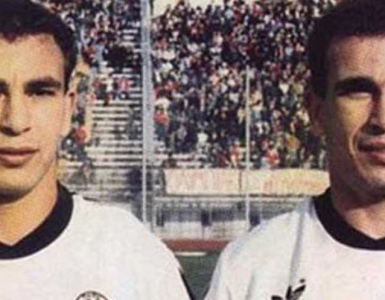SCENARIO: Tough negotiations are expected to resume in Qatar in the coming weeks for a broader peace deal…
By Al Jazeera Media Network
The government of the Democratic Republic of the Congo (DRC) and Rwanda-backed M23 rebels have agreed to pause fighting as they work towards a broader peace deal, according to their joint statement.
The truce, declared late on Wednesday after a round of negotiations in Qatar’s capital Doha, has raised hopes that the latest wave of violence, spurred by M23’s bloody January assault and capture of the DRC’s two largest cities, may begin to subside.
The peace push mediated by Qatar comes after the Gulf state successfully brokered a surprise meeting last month between Congolese President Felix Tshisekedi and Rwandan President Paul Kagame.
The session apparently paved the way for direct talks between DRC and M23, which Kinshasa had previously refused to meet with. Tough negotiations are expected to resume in Qatar in the coming weeks for a broader peace deal.
The decades-long conflict has roots in the 1994 Rwandan genocide, with M23 made up primarily of ethnic Tutsi fighters.
Many were former rebels integrated into the DRC army who later defected, citing discrimination and broken peace deals.
Since 2021, the two sides have agreed to at least six truces that later collapsed. The latest bout of violence since January has killed thousands and raised fears of a wider regional war.
The DRC, United Nations and Western governments have accused Rwanda of supporting M23 with troops and arms, but Kigali has long denied sending military help.
Despite the truce statement, some DRC government and M23 sources cited by the Reuters news agency expressed frustration with the pace of negotiations.
The sources said disagreements over potential confidence-building measures, such as the release of DRC-held prisoners accused of links to Rwanda and M23, had almost derailed the outcome.
Ultimately, however, Qatar managed to pressure the two sides into releasing a joint statement agreeing to continue to work on a truce, according to informed diplomats cited by Reuters.
“This is a crucial step towards ending the violence,” Maxime Prevot, Belgium’s foreign affairs minister, said on Wednesday in a post on X.
Another informed source quoted by the AFP news agency said a “deeper round of discussions” was expected in Doha “in the coming weeks”.
More than 1.1 million people have been displaced as a result of M23’s latest rebel offensive in the eastern Democratic of the Congo (DRC) that began in December 2024. An estimated 7,000 people—mostly civilians—are believed to have been killed.
Hospitals remain overwhelmed with casualties and people continue to flee to neighbouring countries and the Congolese interior. The rapid advance of the Rwandan-backed M23 militia and its political coalition, the Alliance Fleuve Congo (AFC), has sparked fears that the country could be carved into zones of influence and annexed. Insurgent forces currently control sizable territories on 4 fronts in the eastern DRC:
In total, M23 controls territory roughly 8 times the size of Belgium. Should they continue to advance to neighbouring Tshopo and Kisangani provinces, the rebellion will control an area approximately the size of Germany.
Uganda has simultaneously deployed forces into the Congo under an agreement with the DRC government to combat a separate threat from the violent criminal group, the Allied Democratic Forces, which operates on the Uganda-DRC border. Uganda’s role remains ambiguous, however, as further deployments of the Uganda Peoples Defense Forces into Ituri Province to combat another criminal network, the Coopérative pour le développement du Congo (CODECO), occurred nearly in tandem with M23 advances farther south. Notably, Uganda has a long history of cooperation with Rwanda on previous military interventions in the DRC.
The ongoing presence in the eastern DRC of the Forces Démocratique de Libération du Rwanda (FDLR), the remnants of the forces implicated in genocide in Rwanda in 1994, continues to be a major source of tension between the DRC and Rwanda.
The significant role of foreign countries in the DRC has also stoked concerns of a regional conflagration harkening back to the First and Second Congo Wars, where at least 8 African militaries deployed forces in support of opposing sides.
The multidimensionality of the DRC crisis makes it particularly challenging to resolve.





























